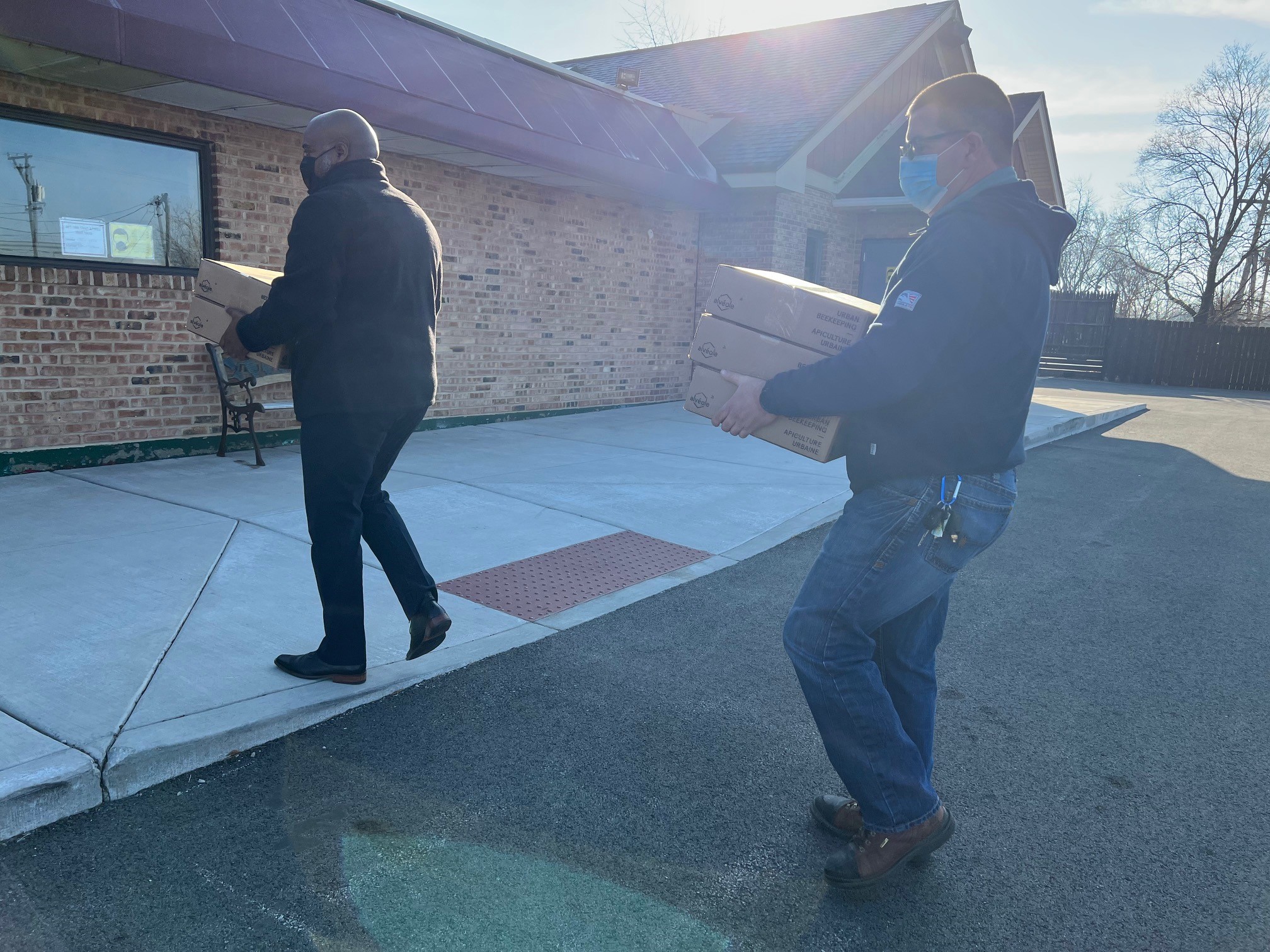
On the vast brushes of prairieland beneath ComEd’s transmission lines in Des Plaines, Ill., a sweet story bloomed.
Along with maintaining the spans of electric lines above to deliver clean, reliable energy to homes, businesses, and communities, ComEd furthered its commitment to building a more sustainable future as part of the ComEd Conserves: Bees, Butterflies and Beyond program, in which beehives are installed on the right-of-way below power lines.
For a second year, ComEd partnered with experienced, local beekeepers to install beehives on its right-of-way to provide healthy habitats for these pollinating allies. Those yellow and black clad, miniature Cupids produced over 120 jars of sweet honey – just in time for Valentine’s Day.
Even sweeter…the locally harvested honey was donated to the Self-Help Closet & Pantry of Des Plaines to be gifted to families in need.
“We uphold our value to act with integrity and are accountable to our communities and the environment.,” said Paul Schore, Senior Environmental Coordinator at ComEd.
Powering lives is ComEd’s beesiness!
Did you know?

Honeybees visit five million flowers to make one pint of honey. Strawberries, cherries, figs, cocoa beans and other buzzworthy Valentine’s Day starlets also owe their sweet existence to honeybees and other pollinators. In fact, one out of every three bites of food in the United States depends on honeybees and other pollinators.
Despite their importance, the U.S. Fish and Wildlife Service reports over 30 species of butterflies, 20 bird species and hosts of bats, bees and other pollinators are federally listed as threatened or endangered under the Endangered Species Act of 1973.
“We’re on the verge of losing hundreds of native bee species in the United States if we don’t act to save them,” said Kelsey Kopec, Researcher at Center for Biological Diversity. “If we don’t act to save these remarkable creatures, our world will be a less colorful and more lonesome place.”
Since 1994, ComEd has planted millions of seeds, restored hundreds of acres, and pledged to transform over 10,000 more acres of land into native prairie plants and grasses to improve pollinator initiatives and support biodiversity.
Click here to learn more about the environmental activities buzzing around ComEd or visit ComEd.com.
Across the country, when an electric line is down or a transformer needs work, the crews that come out toRead More
The auditorium at ComEd’s Chicago Training Center saw a rising voltage of girl power as more and more young womenRead More
In a groundbreaking collaboration, ComEd and Reactivate came together in December and were joined by Illinois Gov. JB Pritzker toRead More
